Shopify review
As you will discover in our Shopify review, this platform remains one of the leading e-commerce store builders on the market today
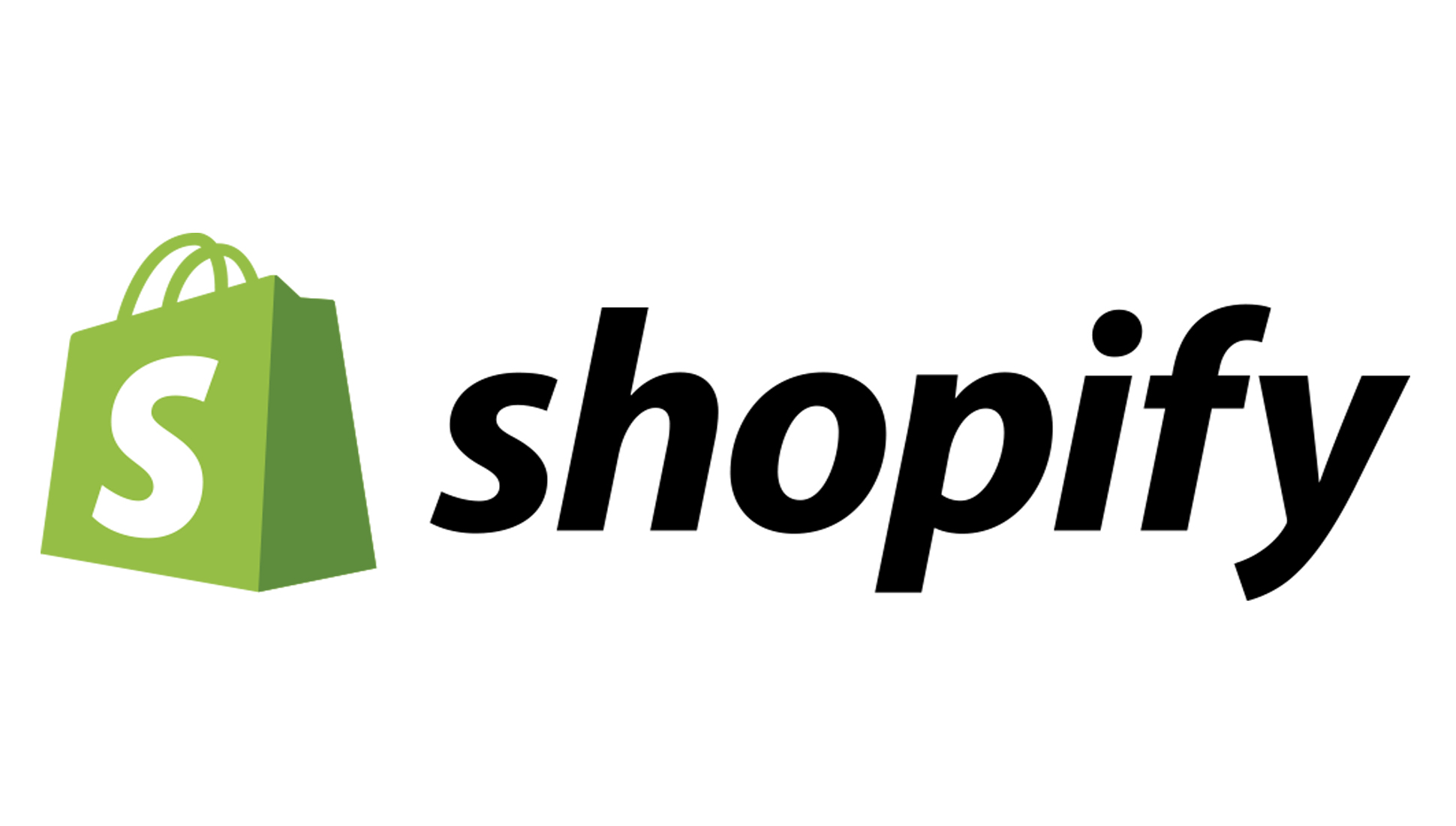
As the world’s most popular ecommerce platform, Shopify naturally offers a great selection of tools to help you create a powerful online store.
-
+
Excellent selection of apps and extensions
-
+
Streamlined mobile management app
-
+
Beginner-friendly store management dashboard
-
-
High transaction fees with third-party gateways
-
-
Expensive compared to some other options

Platforms in consideration to be the best website builder tend to be versatile, beginner-friendly platforms that are designed to help you create a new blog, online store, or any other type of site. Some builders are designed specifically for ecommerce, and come with a selection of dedicated online selling tools.
Shopify is one of the latter, and indeed you may already have heard of it—it’s the most popular online store builder, and a favorite among those entering the ecommerce space for the first time.
Shopify review: Snapshot
In our Shopify review, we take a closer look at the excellent range of online selling tools this platform brings to the table. As you’ll see, Shopify offers absolutely everything you need to create, market, and manage an online store, along with a flexible editor, a selection of free and premium themes, and more.
Score: 4.5/5
Read on for the full Shopify review.
Shopify's competitors
How does Shopify compare to its main competitors?
| Header Cell - Column 0 | Shopify | Weebly | BigCommerce |
|---|---|---|---|
| Score | 4.5/5 | 4/5 | 4.5/5 |
| Pros | - Excellent selection of apps and extensions- Streamlined mobile management app- Beginner-friendly store management dashboard | - Backed by the power of Square payments- Ecommerce focused website builder- Excellent store templates | - A huge range of ecommerce tools- Excellent third-party marketplace integrations- Huge app and extension libraries |
| Cons | - High transaction fees with third-party gateways- Expensive compared to some other options | - Limited design flexibility- No ecommerce with the free plan | - A little complex for small stores- No native mobile app- Limitations with low-end plans |
| Verdict | As the world’s most popular ecommerce platform, Shopify offers a great selection of tools to help you create a powerful online store | Weebly is known for its attractive themes and excellent ecommerce tools, but the restrictive editor will bother some users | If you want to build a large online store backed by the power of an ecommerce giant, BigCommerce could be your best option |
| View deals | Visit site | Visit site | Visit site |
Shopify: Key features
As one of the world’s most powerful and popular ecommerce platforms, Shopify offers an excellent selection of selling features. We’ve outlined a few of the most noteworthy ones below.
One thing that we love about Shopify is its highly functional mobile app. This is designed to help you manage your store on the go, and it comes with a surprising number of advanced tools.
For starters, the Shopify app enables you to manage product listings from your mobile device—take photos and upload them directly, edit prices and product descriptions, and add new products where required. You can also manage and fulfill orders, access detailed data and analytics, and create notifications for specific occurrences. The app is available across both Android and iOS devices.
Data collection and report generation are two things that Shopify does very well. Even the most basic plan comes with analytics tools you can use to make informed marketing and other business decisions. You can access these via the Analytics tab on your store dashboard. Change the reporting time period, view data in a clear, visual format, and generate advanced reports for even more insights.
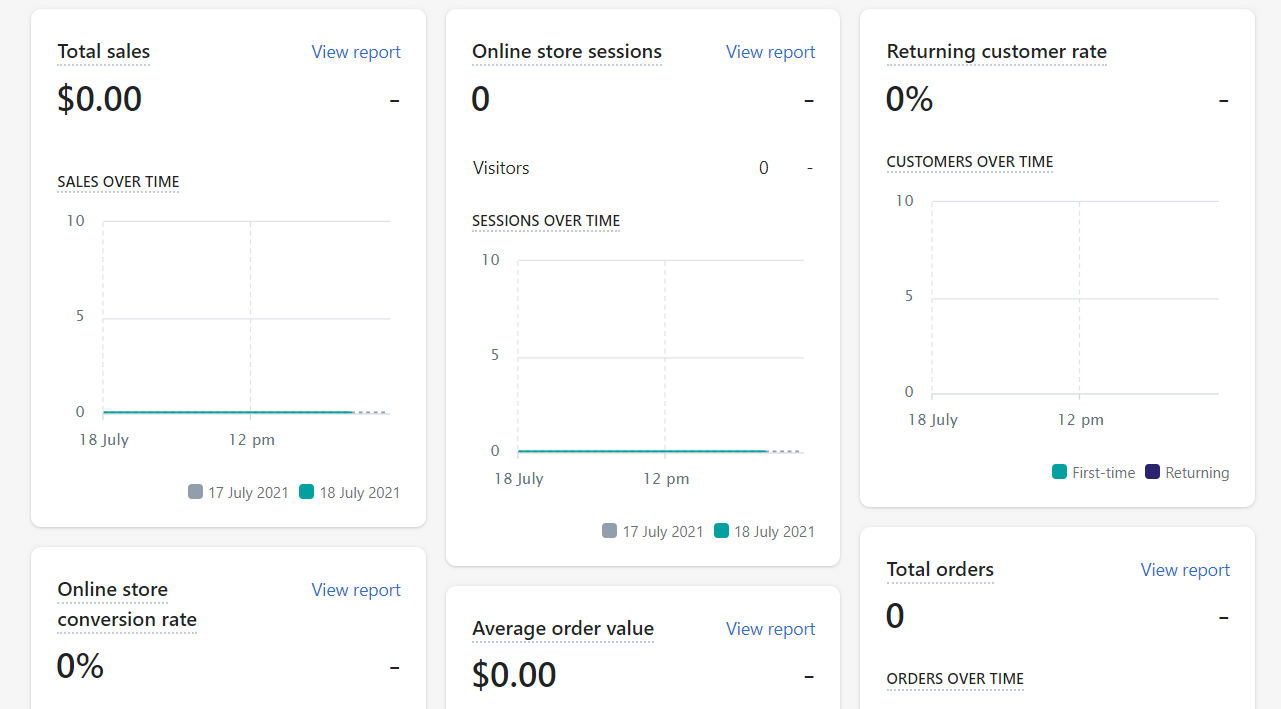
Those who want to sell via marketplaces such as eBay, Amazon, or Google Shopping will love Shopify’s selection of third-party marketplace integrations. Connect your store to these marketplaces with the click of a button, and ensure you’re driving as many sales as you possibly can.
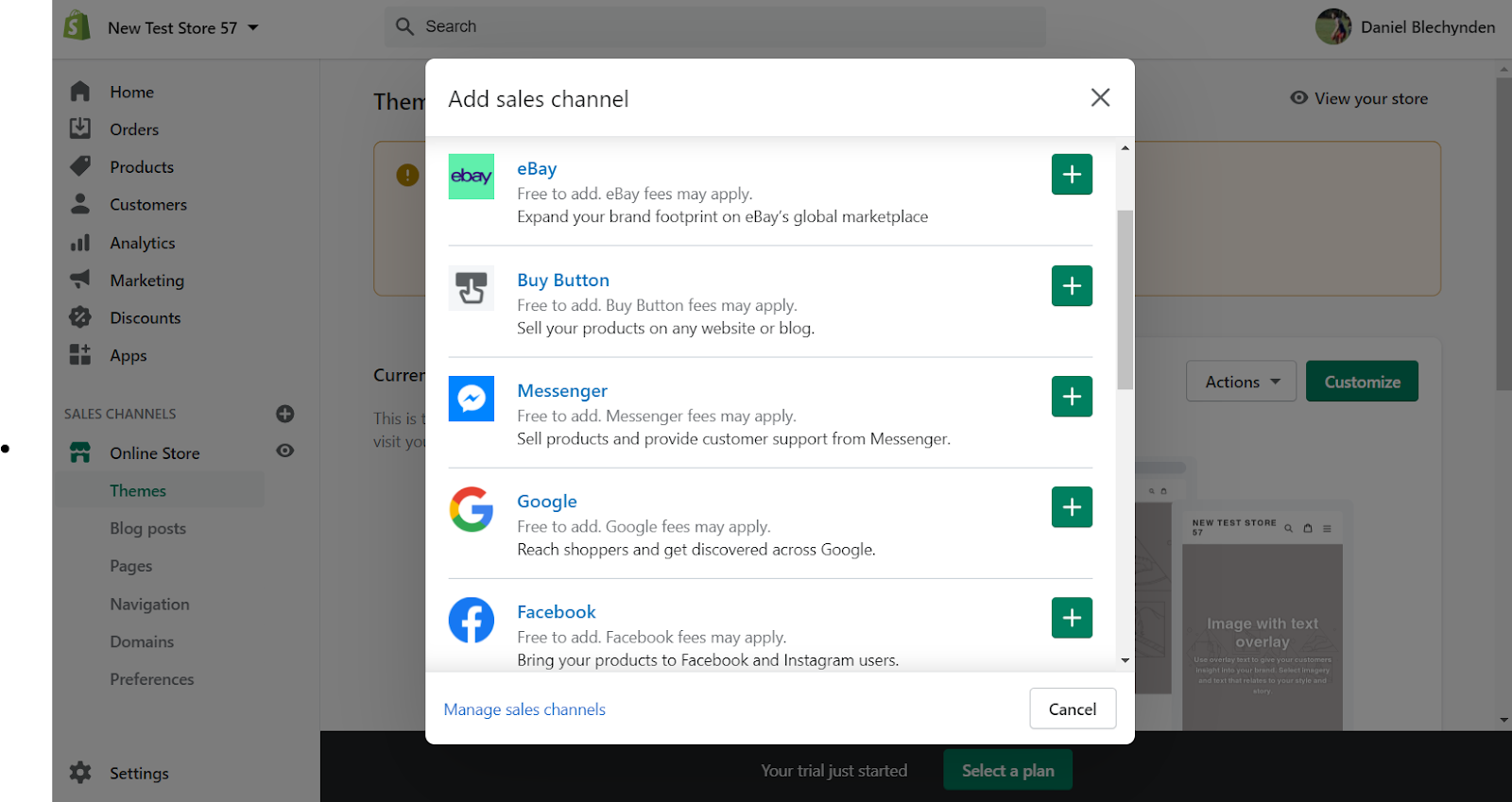
If Shopify’s native features aren’t enough, you can add extra functionality by installing apps from the Shopify App Store. There are thousands of apps available, covering everything from dropshipping to marketing and customer retention. Be careful, though, because app subscription fees can quickly add up.
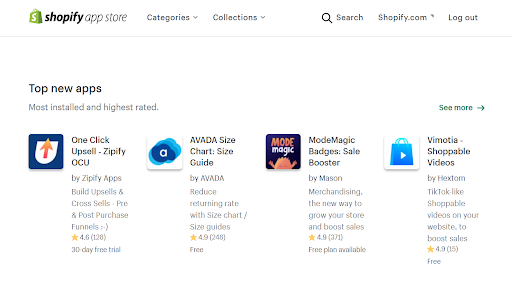
Shopify: What’s new in 2022?
Shopify is an extremely popular ecommerce platform, and it regularly updates its services to ensure you’re getting the best possible experience. One of the most notable recent updates was the introduction of Online Store 2.0.
This is designed to change the face of ecommerce. Shopify was already the world’s leading online store builder, and the new theme and app creation tools will enable developers to create even more advanced resources for store owners.
Another recent announcement concerned the Shopify checkout, which previously couldn’t be customised on any significant level without a large amount of technical knowledge. Now, though, you will be able to configure many more aspects of your store’s checkout, which is something that many users will love.
Shopify: Pricing
There are three standard Shopify plans available, along with a simple Shopify Starter and an advanced Shopify Plus enterprise plan. There’s also a 14-day free trial, and you won’t have to add payment details to access this. What’s more, you will benefit from a 10% discount with annual payments, and a 20% discount with a biannual subscription.
The cheapest Shopify Starter plan (£5 a month) might seem like a great option, but it only enables you to add a buy button to your existing website. You won’t be able to access the store builder or any advanced management tools.
The Basic Shopify (£19 a month), Shopify (£49), and Advanced Shopify (£259) plans all provide full access to the store builder, along with increasingly advanced features. Shopify Plus is an enterprise-level option designed for large online stores.
Shopify's pricing plans
| Plan type/feature | Shopify Lite | Basic Shopify | Shopify | Advanced Shopify | Shopify Plus |
|---|---|---|---|---|---|
| Cost per month | £5 | £19 | £49 | £259 | From £1,640 |
| Cost per year | £54 | £205.20 | £529.20 | £2,797.20 | From £17,712 |
| Store builder | ✖ | ✔ | ✔ | ✔ | ✔ |
| Staff accounts | N/A | Two | Five | 15 | Variable |
| Inventory locations | N/A | Up to four | Up to five | Up to 8 | Variable |
| Third-party transaction fees | None | 2% | 1% | 0.5% | Variable |
Testing Shopify
In order to comprehensively compare Shopify to the competition, we analysed a series of its features and tools to see how it performed. This included creating a store via the Shopify website builder, and the management functionality open to ecommerce users, because these two factors are key when taking ecommerce website building into account.
How do you create a store with Shopify?
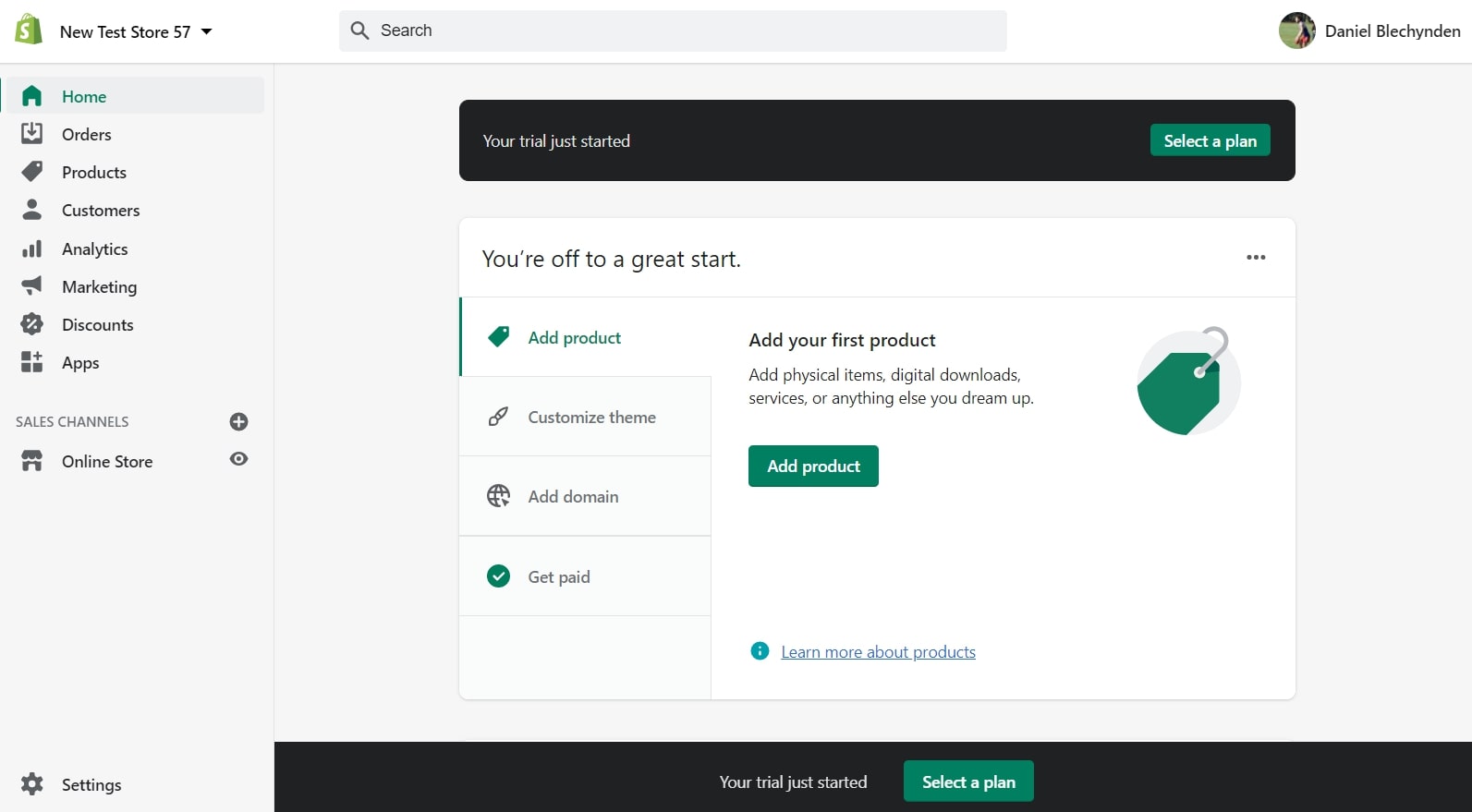
To get started with Shopify, we recommend taking advantage of the 14-day free trial. Create a new account, and then answer a few questions to ensure you are provided with the resources you need.
Next, you will be taken to your Shopify dashboard, where you will be prompted to perform specific setup actions to get your store up and running. Add your first products, customise your theme, connect a domain, and start your first marketing campaign to drive your first sales.
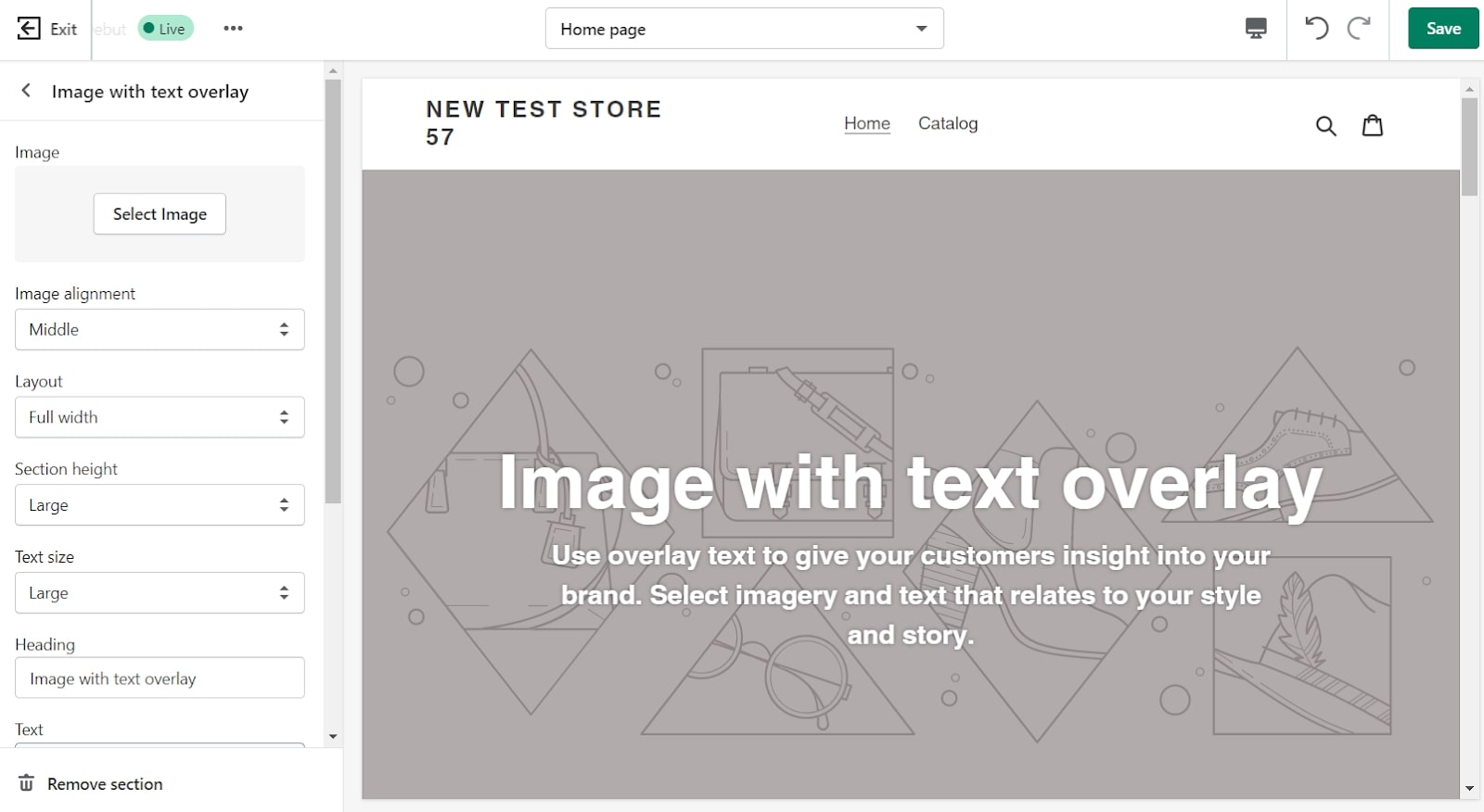
A default theme will be installed to begin with, but there are numerous options to choose from. Navigate to the Themes tab via the menu on the left of the screen, and hit the Customise button to begin personalising your store.
Unfortunately, the Shopify editor is quite basic. Your layout will be quite confined by the theme you’re using, and it can be a little confusing to get started. On the plus side, you can add your own content, add or remove sections and elements as required, and edit your site’s code to fine-tune your design.
What options are there for ongoing management?
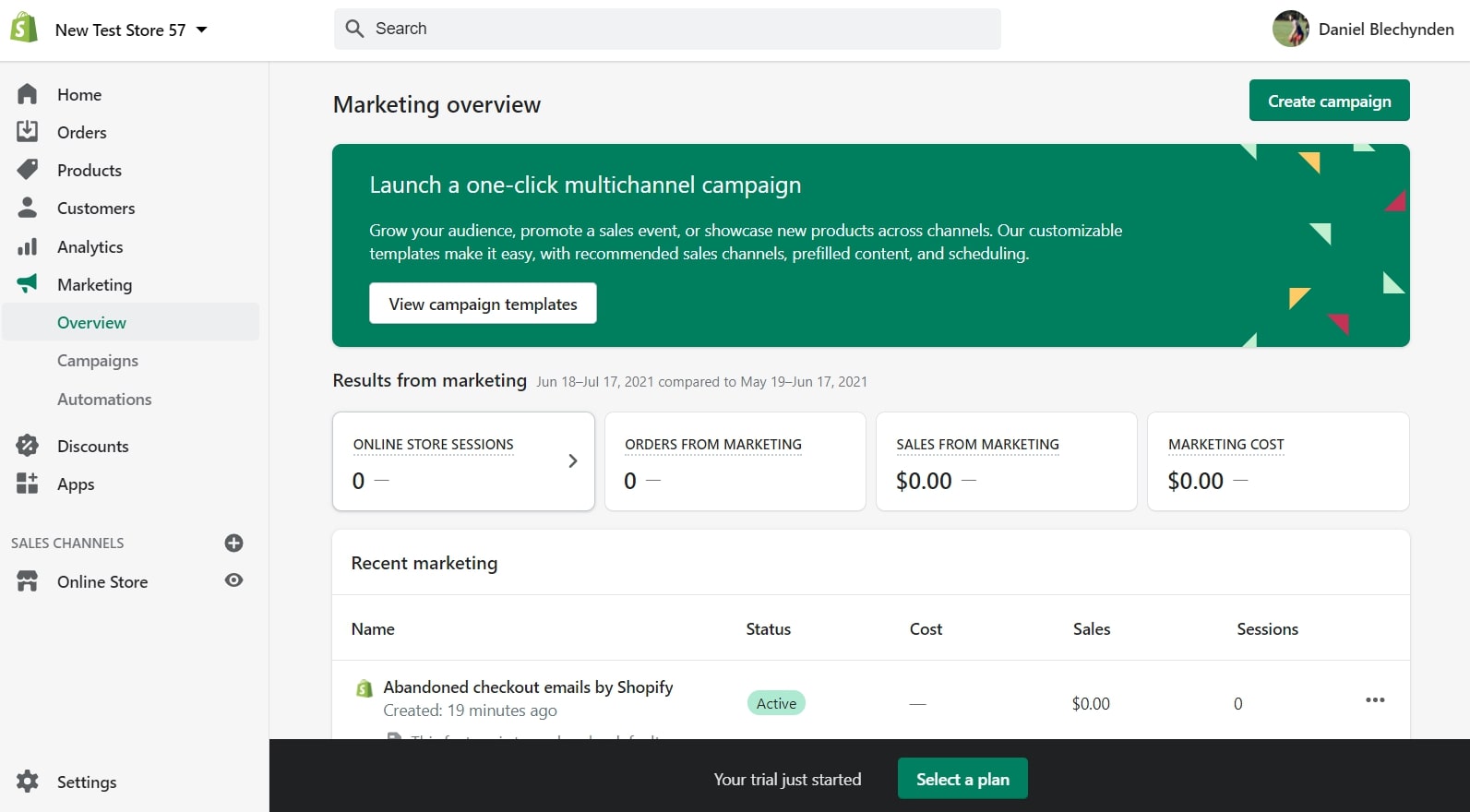
If you decide to use Shopify, you will benefit from an excellent selection of ongoing management tools. These include elements ranging from marketing to analytics, and everything in between.
On the left of your Shopify dashboard, you will find a list of menu options to help you manage your store. Use the Orders tab to view and fulfil new orders, take care of what you’re selling via the Products tab, and view information about the people who have made a purchase from your store in the past via the Customers tab.
Use the Analytics tab to access a range of information about your store and its performance, and use this information to inform marketing decisions and launch new campaigns via the Marketing menu. Add specials via the Discounts tab, and integrate third-party apps with your store, to ensure you have the exact functionality you require.
Alternatives to Shopify
There’s a reason why Shopify is the world’s most popular ecommerce platform. It’s beginner friendly, easy to use, and has excellent online selling tools.
In addition, it comes with a 14-day free trial, a selection of online store templates, and streamlined store management features. Prices start at just £19 a month, although you will need to pay significantly more to access advanced tools such as multi-currency support or a third-party shipping calculator.
BigCommerce is arguably Shopify’s biggest competitor, although it tends to target those creating large stores. It’s an excellent option for enterprise-level clients who anticipate high sales volumes, but it comes with plenty of tools for smaller customers as well.
Prices for a BigCommerce subscription start at £24.56 a month, which is only slightly more expensive than Shopify. You will have access to 170 store templates, but while many are free, the price of some of these can stretch to hundreds of dollars each.
If you’re looking for a cheaper option, we’d recommend considering Weebly. It was acquired by payment processing giant Square in 2018, and contains a great selection of ecommerce tools for novice users.
Prices start at just £9 a month, though the most expensive plan comes in at just £28 a month. One thing to note about Weebly is that it offers quite limited design flexibility, but the professionally designed templates are excellent.
| Header Cell - Column 0 | Shopify | Weebly | BigCommerce |
|---|---|---|---|
| Templates | 81 | 50+ | 170 |
| Free domain | ✖ | ✔ (with high-end plans) | ✖ |
| Support | Email, live chat,scheduled phone callbacks | Email, phone, live chat | Email, phone, live chat |
| Basic plan | £19 a month | £9 a month | £24.56 a month |
Shopify: The verdict
Shopify is by far the world’s most popular ecommerce platform, and one would expect it to offer excellent service across the board. Our analysis revealed a few small flaws, but we didn’t come across any major deal-breakers.
For one, Shopify offers excellent value for money. Its cheapest Basic Shopify plan comes in at £19, which may seem a little expensive at first glance, but it has an excellent range of online selling tools.
On top of this, you will benefit from the beginner-friendly editor. It doesn’t offer the best design flexibility we’ve seen, and you will be quite constrained by the theme you choose, but you shouldn’t have any trouble putting together an attractive store design.
There are also numerous store management tools that will help you streamline day-to-day business activities. The analytics portal is excellent, and you can keep track of everything from orders to the performance of your marketing campaigns via the relevant menu options.
At the end of the day, we’d recommend taking advantage of Shopify’s 14-day free trial, and testing the platform if you’re thinking about creating a new online store. Sure, it might not be the best choice for your needs, but there’s absolutely no harm in giving it a go.
After all, there’s a reason why Shopify is so popular among online store owners and digital entrepreneurs.
Further reading on website builders and web hosting
If you're looking to find out more about Shopify, read our step-by-step guide on how to build a website with Shopify. Learn how to build an ecommerce website, and find out who the best ecommerce website builders are, and whether Shopify ranks among the best small business website builders. Finally, take a look at the best web hosting services if you've got web development experience and want more flexibility.
Get the ITPro daily newsletter
Sign up today and you will receive a free copy of our Future Focus 2025 report - the leading guidance on AI, cybersecurity and other IT challenges as per 700+ senior executives
Daniel is a freelance technology and finance writer, whose scientific background in the natural sciences lends rigour and nuance to his informative, accessible articles. His reviews on website builders, web hosting and business web development grace the virtual pages of TechRadar Pro, WebsiteHostingRating.com, and HostingReview.com, as well as IT Pro Portal. Well-versed in blockchain, cloud computing and cybersecurity, Daniel takes a keen interest in all aspects of B2B and B2C tech.
-
 ‘Phishing kits are a force multiplier': Cheap cyber crime kits can be bought on the dark web for less than $25 – and experts warn it’s lowering the barrier of entry for amateur hackers
‘Phishing kits are a force multiplier': Cheap cyber crime kits can be bought on the dark web for less than $25 – and experts warn it’s lowering the barrier of entry for amateur hackersNews Research from NordVPN shows phishing kits are now widely available on the dark web and via messaging apps like Telegram, and are often selling for less than $25.
By Emma Woollacott Published
-
 Redis unveils new tools for developers working on AI applications
Redis unveils new tools for developers working on AI applicationsNews Redis has announced new tools aimed at making it easier for AI developers to build applications and optimize large language model (LLM) outputs.
By Ross Kelly Published
-
 Google layoffs continue with "hundreds" cut from Chrome, Android, and Pixel teams
Google layoffs continue with "hundreds" cut from Chrome, Android, and Pixel teamsNews The tech giant's efficiency drive enters a third year with devices teams the latest target
By Bobby Hellard Published